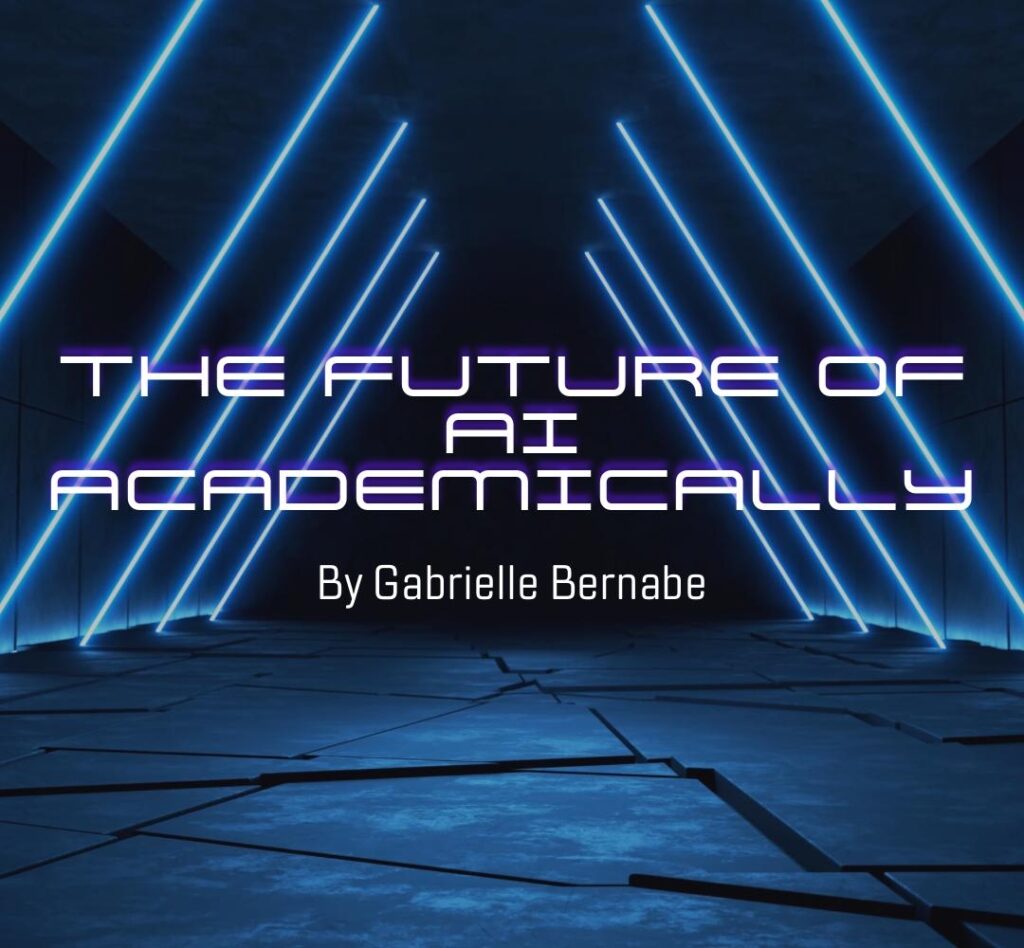The Future of AI Academically – A Personal Piece
Written by Gabrielle Bernabe
On February 7, I along with a few professors and honors students attended a presentation on AI. The name of this presentation was “From ChatGPT to Grammarly: Balancing Innovation, Integrity, and Ethics in the Age of AI” and it was led by Torrey Trust and others. Learning how to properly use it for students, and the type of language that should be incorporated in current syllabi for the professors.
To be quite frank, AI and academia mixing together has been one of my worst fears. AI and how to properly use it in academia is not yet known, simply because of how new this development is to our social conscience. I personally don’t want to use it after looking at the horror stories that can come from it.
With that being said, I went into the Zoom meeting with a hesitant heart but an open mind. I take pride in the work that I do, and regardless of how convenient it is, I’d like my work to be 100% human. It also doesn’t help that being accused of using AI, to me, is incredibly insulting, and it feels as though it is a dig at my intelligence.
While a lot of the meeting was directed towards professors and their questions about new developing technology and how to find apps to detect AI, surprisingly some of the advice to both the professors and students were ones of acceptance. Accepting the feats of AI and using them in an appropriate method for your class. Going by your professors guidelines, and professors in turn learning how to make assignments that can use AI while still being in the regulations of their institution.
I had a few questions on what the use of AI will do to the parts of our brains that use critical thinking, yet that is more of a question to bring up in one of my sociology or philosophy classes.
Speaking of these said classes, our discussions of AI delves into what will happen to the human mind and understanding as time goes on. As is seen with any new development of technology, its effect on the next generations is very significant. Children from Shakespeare’s time period know significantly more words off the top of their heads then children in modern day. This is because of the development of the cell phone and the Internet. In turn, with the development of AI, what will be the next thing that our future children lose the capabilities to do themselves? I think the answer to this question will be critical thinking. The idea of thinking for yourself and using deductive reasoning to find an answer to the world’s many questions.
In all, I think that for many of those who are also worried about the use of AI in academia, seeking out presentations like this one will be good to gain more understanding of the topic. I may not be fully convinced, and still take certain measures so the professors know my work is organic, but the world is changing, and quickly. Therefore, it is not a bad thing to learn how to change with it.


